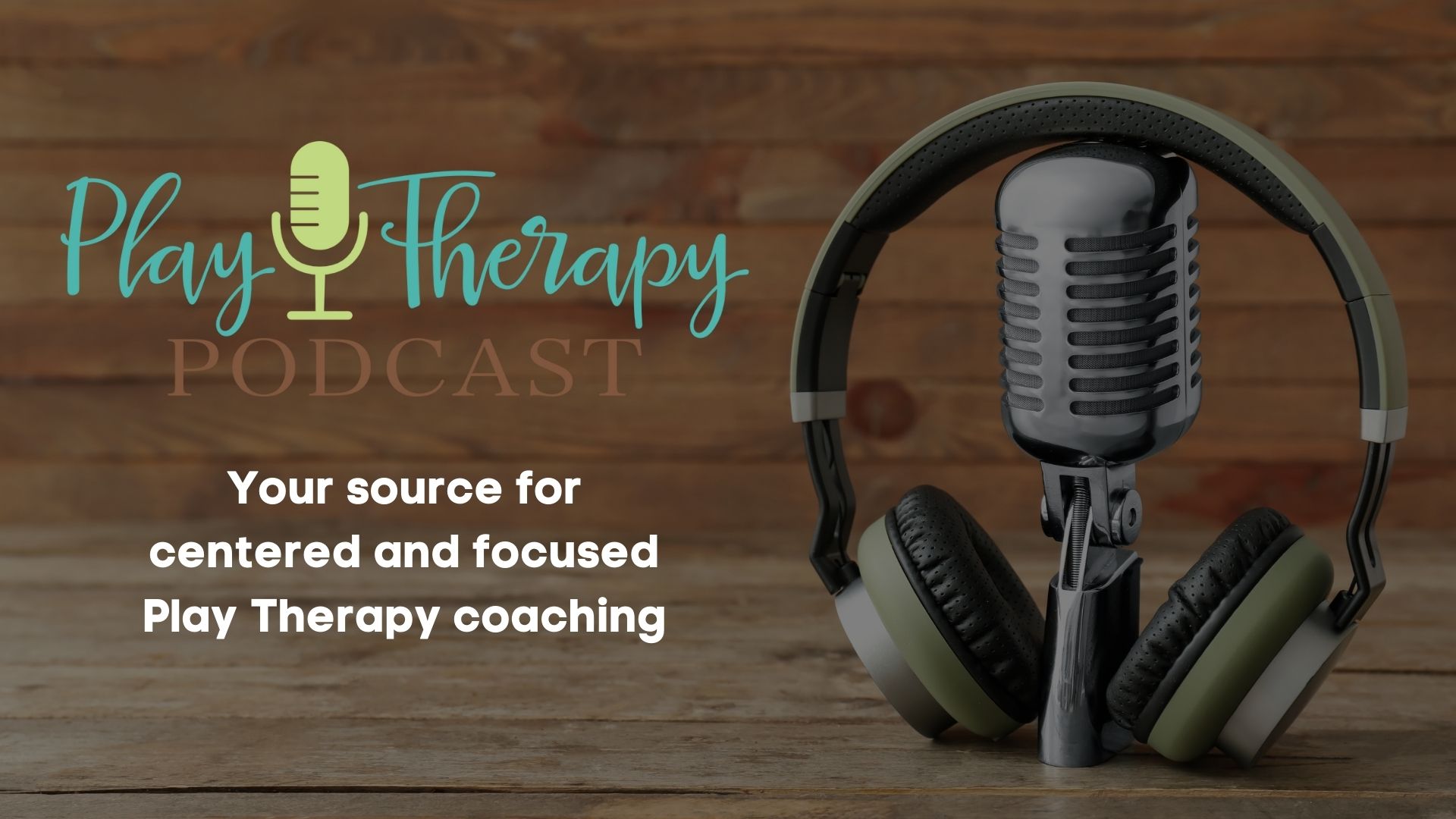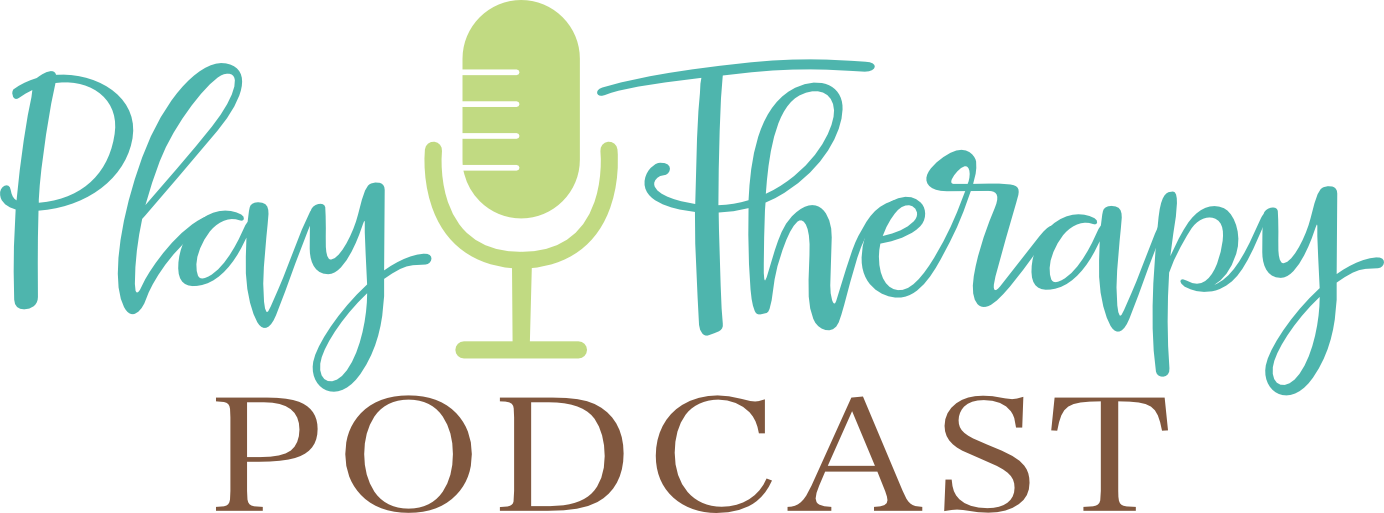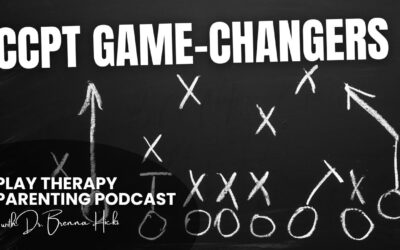
Listen to the latest episode
Subscribe to my email newsletter JUST FOR THERAPISTS!

Latest podcast episodes
378 | Stop Rescuing Children in the Playroom
In this episode, I address something I see far too often in child-centered play therapy: therapists struggling to let children struggle. If it is painful for you to watch a child wrestle with frustration, anger, failure, or confusion in the playroom, we need to...
376 | Q&A Lightning Round #9: Six Questions from Four Listeners Answered
In this lightning round episode, I tackle four listener questions that each highlight common pressure points in CCPT practice. First, I address a question about children who consistently want the lights turned off in session — particularly in the context of suspected...
375 | Why Most CCPT Therapists Crumble Under Pressure (And What To Do About It!)
In this episode, I walk you through the Summit Framework — the developmental roadmap for mastery in child-centered play therapy that I presented at the Field of Dreams training. I believe one of the greatest challenges in our field is that we’ve never clearly defined...
374 | What to Do When Children Want to Save What They Built – A CCPT Q&A
In this Q&A episode, I respond to a question from a school-based, mobile play therapist navigating what to do when children want to preserve, hide, or protect things they build in session. I unpack how this dynamic shifts when you are not in a static playroom and...
373 | Perfectionism, People-Pleasing, and Fear of Vulnerability
In this episode, I respond to a question about a nine-year-old who presents as mature, responsible, and “put together,” yet shows strong perfectionistic and people-pleasing tendencies in session. I unpack what is often happening beneath that polished exterior — faking...
372 | Why This Podcast Is Unapologetically Child-Centered: The Purpose of the Play Therapy Podcast
In this episode, I pause and recenter on the why behind this podcast and the work I’m committed to in the play therapy field. With a recent surge of new listeners, I felt it was important to clearly articulate what this space represents and why Child-Centered Play...
371 | OCD Behaviors in Children: What We’re Really Treating in CCPT
In this episode, I address a topic I’ve been getting more and more questions about: children who present with obsessive or compulsive behaviors that mirror OCD. I explain why I feel OCD is often not an appropriate childhood diagnosis and why these behaviors are best...
370 | CCPT Gamechangers: How to Respond When Adults Say Kids Are Rational
In this Game Changers episode, I tackle one of the most common objections we hear from adults: “If children aren’t rational or cognitive, how do they learn in school?” I explain why this question reflects an adulthood bias and how academic learning is often...
369 | Understanding Time and Touch in Child-Centered Play Therapy
In this episode, I answer two questions that touch on both the clinical and relational demands of child-centered play therapy. First, I address why the average number of CCPT sessions has shifted over time from 20–30 to more commonly 30–40 sessions. I share my...
368 | CCPT Gamechangers: The Hidden Problem with Battery-Operated Toys
In this episode of the CCPT Game Changers series, I take a close look at battery-operated toys in the playroom and why they require much more intentional consideration than we often give them. I explain how toys are selected—not collected—and why simplicity,...
367 | Night Terrors, Adoption, and Age-Appropriate Truth
In this episode, I respond to a question about a six-year-old client with a history of early instability who has experienced recurring night terrors. I explain why night terrors are not always trauma-based and how frequency, intensity, and impact on daily functioning...
366 | CCPT Gamechangers: Why ‘You Wanted Me to Know’ Isn’t Truly Child-Centered
In this episode of the CCPT Game Changers series, I take a close look at a group of phrases I hear frequently in play sessions, such as “You wanted me to know…”, “You wanted to tell me…”, or “You wanted to show me…”. While these statements may seem harmless, I explain...

Get Brenna’s Latest Book
Device Detox: A Parent’s Guide To Reducing Usage, Preventing Tantrums, And Raising Happier Kids.
“Dr. Brenna Hicks does an excellent job of sketching the problem, but the book shines brightest when Dr. Hicks offers a suite of practical, evidence-based strategies for coping with screen overuse in children. A valuable book that deserves to be read by parents everywhere.”












